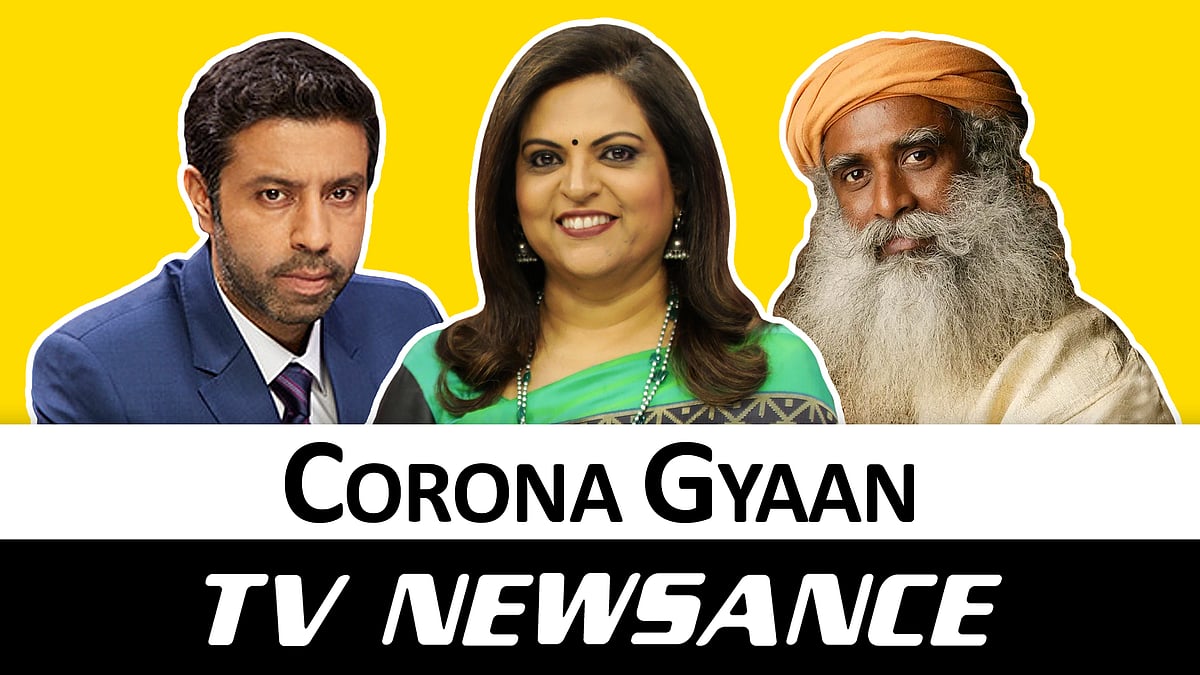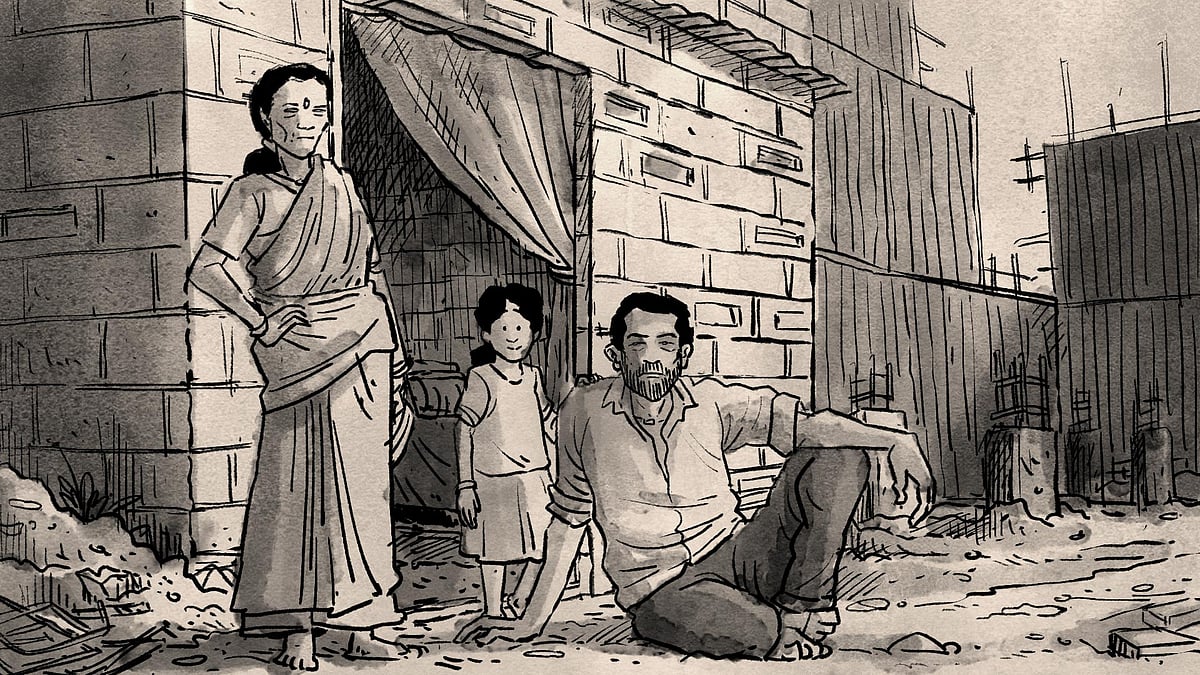TV anchors in times of a pandemic: Is Taimur missing the paparazzi?
As migrant workers and the poor suffer, news channels are busy getting celebs to weigh in on the lockdown.
Over the last few days, news outlets and social media have been flooded with visuals and stories on how the lockdown is impacting the most marginalised and deprived amongst all of us: the poor. Daily wage workers and migrants are headed towards their native villages, on foot, with no hope for food or assistance.
The images are haunting and uncover the ugly reality that all forms of mass media work hard to whitewash.
One would assume that our anchors in such a crisis will drop their usual drama carved out for TRPs, and amplify such stories to put pressure on the government. Perhaps get health experts, epidemiologists and policymakers to weigh in.
But no, they turn to celebs.
On March 25, the first day of the national lockdown, Navika Kumar of Times Now thought it was fit to give over 20 minutes of the primetime slot to a Saif Ali Khan interview. He spoke about "how he is comfortable with spending time with his family", his guitar lessons, and Kanika Kapoor. All while Kumar beamed through most of the show.
This on a day when people were seen scampering for groceries and kids were wailing at deserted bus stands. Not for Kumar. She made sure Times Now’s viewers were abreast with how Taimur, Saif Ali Khan's son, was handling the lockdown.
And Navika Kumar wasn't alone. Ever since the number of COVID-19 cases spiked, a slew of celebrities have populated the tiny screens of news shows.
Vivek Oberoi had the government's back.
Ranveer Shorey on CNN-News18. Why speak to daily wage workers and put questions to the government, when you can have actors present their “viewpoint” on the impact on the poor?
Also on CNN-News18, Bhupendra Chaubey asked Poonam Dhillon, "Tell me, when you're all by yourself, do you still wash your hands?"
How can the poor on the streets beat coronavirus? By singing and laughing, of course!
Neil Nitin Mukesh sang his grandfather's famous song, Jeena yahan, marna wahan. Such nostalgia. Much social content.
Adnan Sami doesn't want the pandemic to be taken casually. Now, if only Times Now takes note and stops calling celebs like him to comment on coronavirus.
Social media and technology now make sure we all have a platform to voice our stories and issues whenever we want to. You can start a hashtag, complain about the company whose product you didn't like, and tweet to a beloved leader — all with a few taps on your mobile screen. If there was any communication gap that our social and economic privilege didn't fix, technology has covered it.
Not for the poor, though. Their stories and struggles are not compatible with our timelines and the hashtags. Journalism, at its core, has a responsibility to voice the voiceless. A mandate to ensure issues faced by millions of people is not looked over or ignored at the altar of entertainment or lifestyle content. We have magazines and channels to cater to that, after all.
We know why channels prefer to get celebrities to their primetime debates and shows. They get free publicity and airtime, and TV channels boost their TRPs and social media likes. It's a win-win. Moreover, bytes by celebrities suit the agenda of pliant TV channels. Why get health or a policy expert who may upset your quest to be more pro-government than the rival channel, when you can get a singer to sing on your “debate” instead? Or wonder if Taimur is indeed missing the paparazzi.
At a time when people are walking barefoot and staring at starvation, these channels want us to know how stars are dealing with the lockdown, how their guitar lessons and book suggestions should inspire us. Because why do journalism, when you can slip in free Page 3 clickbait cringe as news.
For all the branding to position themselves in the interest of the nation and to get to the truth, their programming makes it clear what they pursue and whose interests they serve: TRPs that get advertisements, and coverage that helps the government.
Their reluctance to straighten up even in times of a public health crisis, as millions suffer, proves they take you, the viewer, for granted. As long as they can attract eyeballs for advertisement revenue with their antics, journalism will be at a loss.
And that's why we ask you to pay to keep news free. Journalism, as long as advertisers fund it — government or corporates — will not serve the public interest. Subscribe to Newslaundry or pick a reader-supported news outlet of your choice. You can find our ad-free coverage on the coronavirus pandemic here and our reporter Basant Kumar’s ground report on the exodus of migrants here.
 TV Newsance Episode 83: Sadhguru and Saif make it to Corona TV news
TV Newsance Episode 83: Sadhguru and Saif make it to Corona TV news Bhilwara: In India’s first district to go on lockdown, workers battle hunger and uncertainty
Bhilwara: In India’s first district to go on lockdown, workers battle hunger and uncertainty
